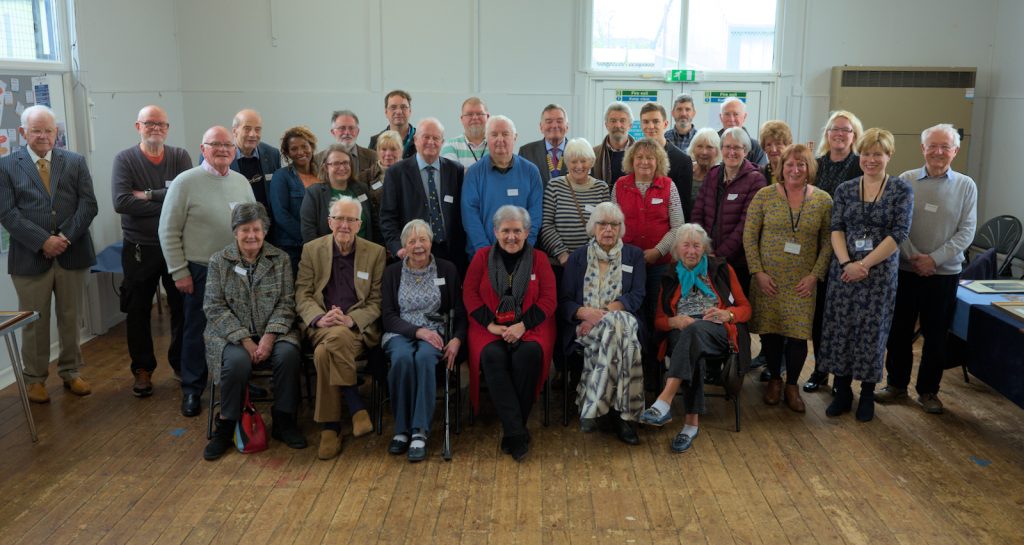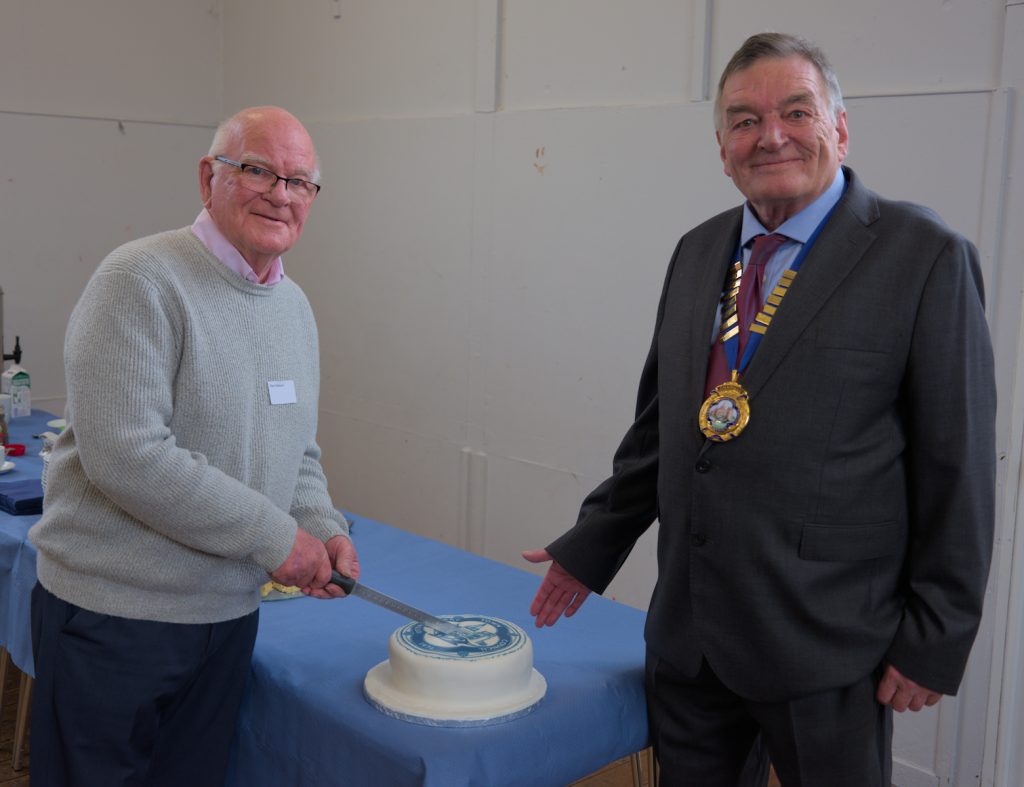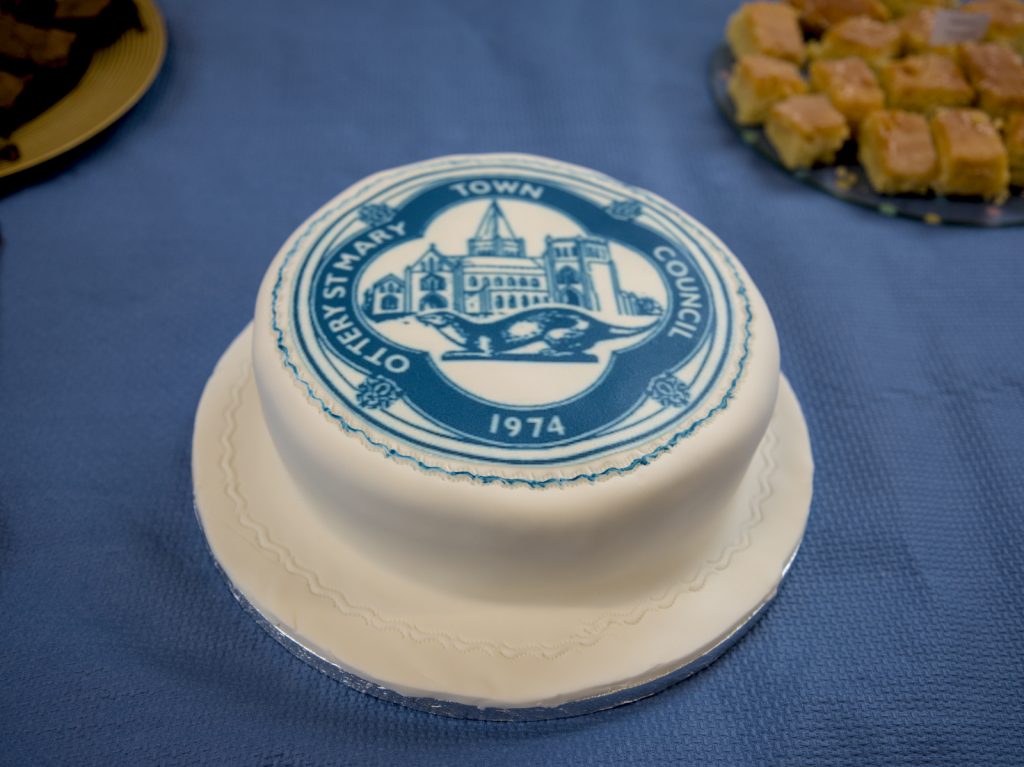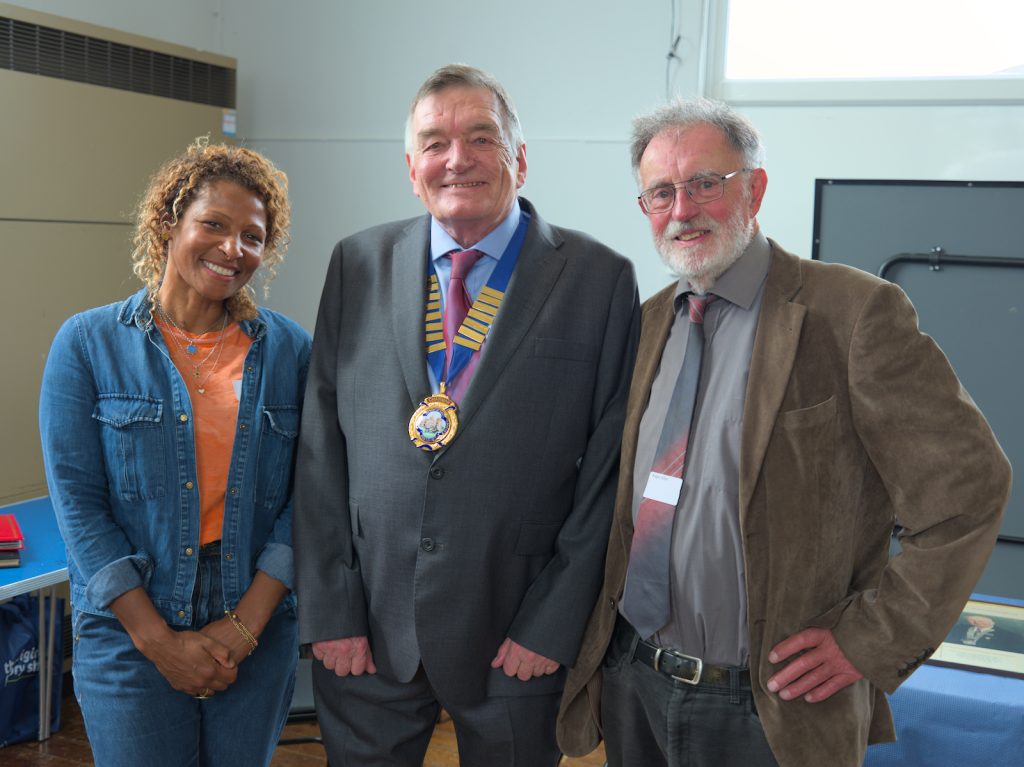This April marks a significant milestone for Ottery Town Council as it commemorates the 50th anniversary of its establishment, succeeding the former Urban District Council. In celebration of this occasion, the Town Council hosted a reunion gathering at the Station Hub, bringing together past and present councillors to recognise their invaluable contributions to the town.
The event, attended by thirty former and existing councillors, provided a warm atmosphere for reminiscing about past achievements and pivotal moments that have shaped Ottery St Mary over the decades. It was a perfect opportunity to acknowledge the dedication and selfless service of these individuals who, as Councillors, have tirelessly worked to better their parish.
Among the attendees were former Mayor Glynn Dobson, who served from 2008 to 2019 and was the longest standing Mayor of the Council, and Roger Giles, recognised as the longest-serving councillor with 32 years of dedicated service, earning him the title of Honorary Freeman of the Town. Also present was Tara Greifenberg who was both the youngest and the shortest serving Councillor, who joined the Council at 18 years old but the age limit at that time was 21 and left after two days!
Mayor Richard Grainger extended his gratitude to all present for their enduring efforts in shaping Ottery St Mary’s prosperous present and promising future.
Reflecting on the gathering, Town Clerk Kerry Kennell expressed appreciation for the opportunity to meet and connect faces with the names that have been integral to Ottery St Mary’s progress. She acknowledged the invaluable contributions of past councillors in laying the foundation for the town’s current success, emphasising the ongoing dedication of the current council team in driving further improvements.
The formation of Ottery Town Council in 1974 under the Local Government Act 1972 marked a transformative period in local governance, ushering in structural reforms that continue to influence local government functions to this day. While responsibilities shifted across tiers, with Devon County Council now overseeing roads and East Devon District Council managing planning, Ottery Town Council retained vital responsibilities such as cemeteries and allotments.
The enduring relevance of the 1972 Act underscores the stability and continuity it has provided to local governance structures, even amidst evolving challenges and additional statutory duties over the years. While advancements like virtual meetings during the pandemic briefly challenged traditional meeting norms, the Act’s guidelines on physical meetings and public notices remain pivotal in maintaining transparency and democratic processes.
As Ottery Town Council celebrates its rich history and embraces future challenges and opportunities, the spirit of community service and collaboration remains at the forefront, ensuring Ottery St Mary continues to thrive as a vibrant and cohesive town.





